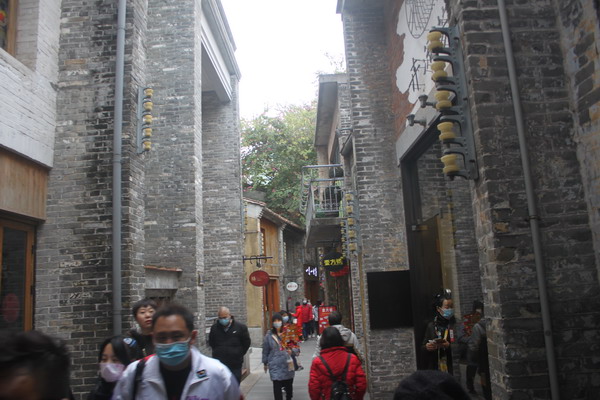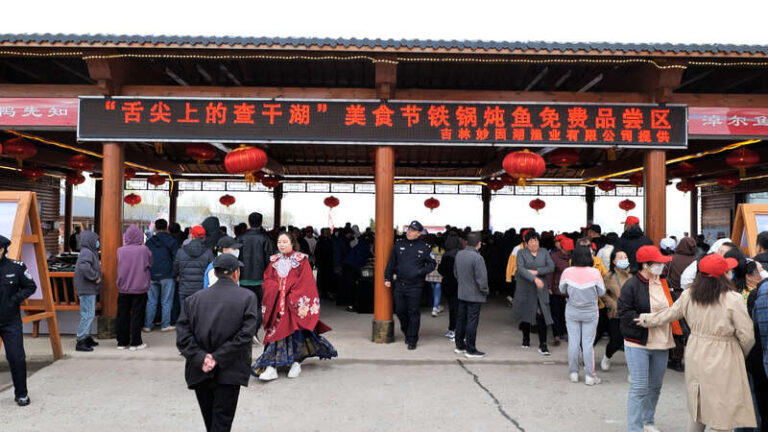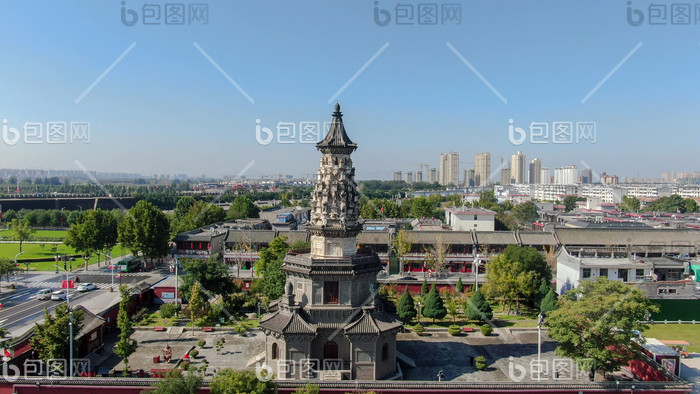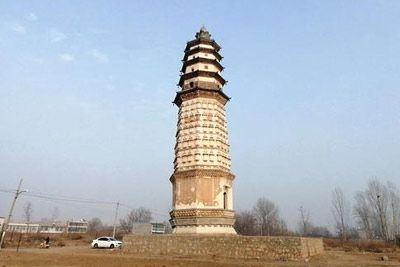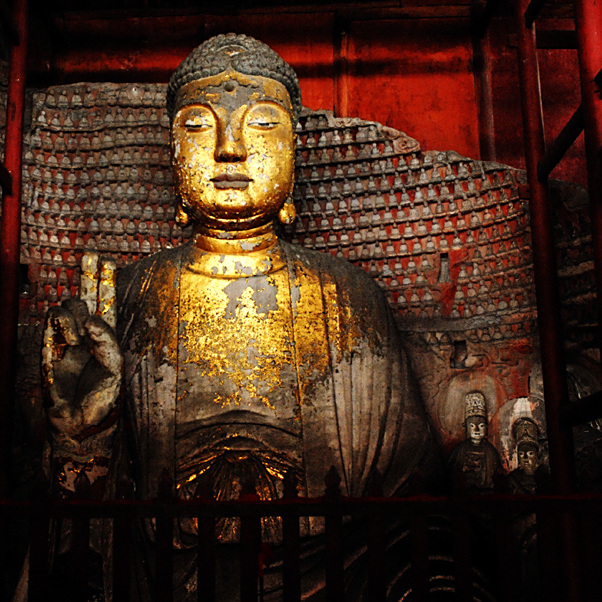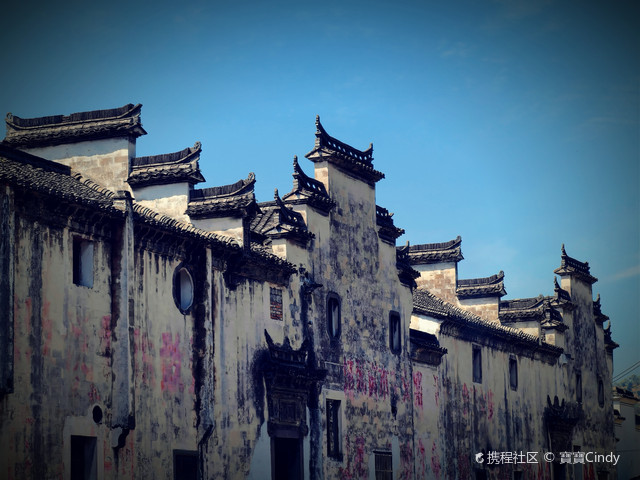Experience the Serenity of Jiyuan Yangtaigong: Your Ultimate Travel Guide
An Essential Guide to Visiting Jiyuan Yangtaigong
In This Guide
- An Essential Guide to Visiting Jiyuan Yangtaigong
- The Rich History of Jiyuan Yangtaigong
- Main Highlights: What to See at Jiyuan Yangtaigong
- Planning Your Visit: A Practical Guide
- Tickets, Hours, and Booking
- How to Get There
- Local Cuisine and Accommodation
- Frequently Asked Questions
- Final Thoughts on Your Trip
Nestled in the tranquil embrace of the Wangwu Mountain range in Henan Province, Jiyuan Yangtaigong (阳台宫) stands as a testament to China’s rich spiritual heritage and architectural grandeur. Established in 727 AD during the Tang Dynasty, this revered Taoist temple complex is not only an important religious site but also a historical gem that draws visitors eager to connect with its storied past.
As one of the three principal Taoist palaces in the Wangwu area, Yangtaigong offers a unique glimpse into the harmonious blend of nature and architecture. Its structures, including the magnificent Daluo Sanjing Hall and the elegant Yuhuang Pavilion, showcase exquisite craftsmanship from the Ming and Qing Dynasties. Visitors can marvel at intricate carvings and vibrant colors adorning these ancient edifices, each narrating tales of deities, legends, and the enduring spirit of Chinese culture.
Moreover, Yangtaigong’s significance is amplified by its historical connections, including its association with the celebrated poet Li Bai, who famously inscribed his only surviving calligraphic work here. The temple’s serene setting against the backdrop of majestic mountains creates an idyllic atmosphere for reflection, meditation, and exploration.
With free admission and a recommended visit duration of one to two hours, Jiyuan Yangtaigong invites travelers to immerse themselves in its tranquil surroundings, making it a must-see for anyone journeying through this enchanting region of China. Whether you’re a history enthusiast, a spiritual seeker, or simply a lover of beautiful landscapes, the allure of Yangtaigong promises a captivating experience that transcends time and tradition.
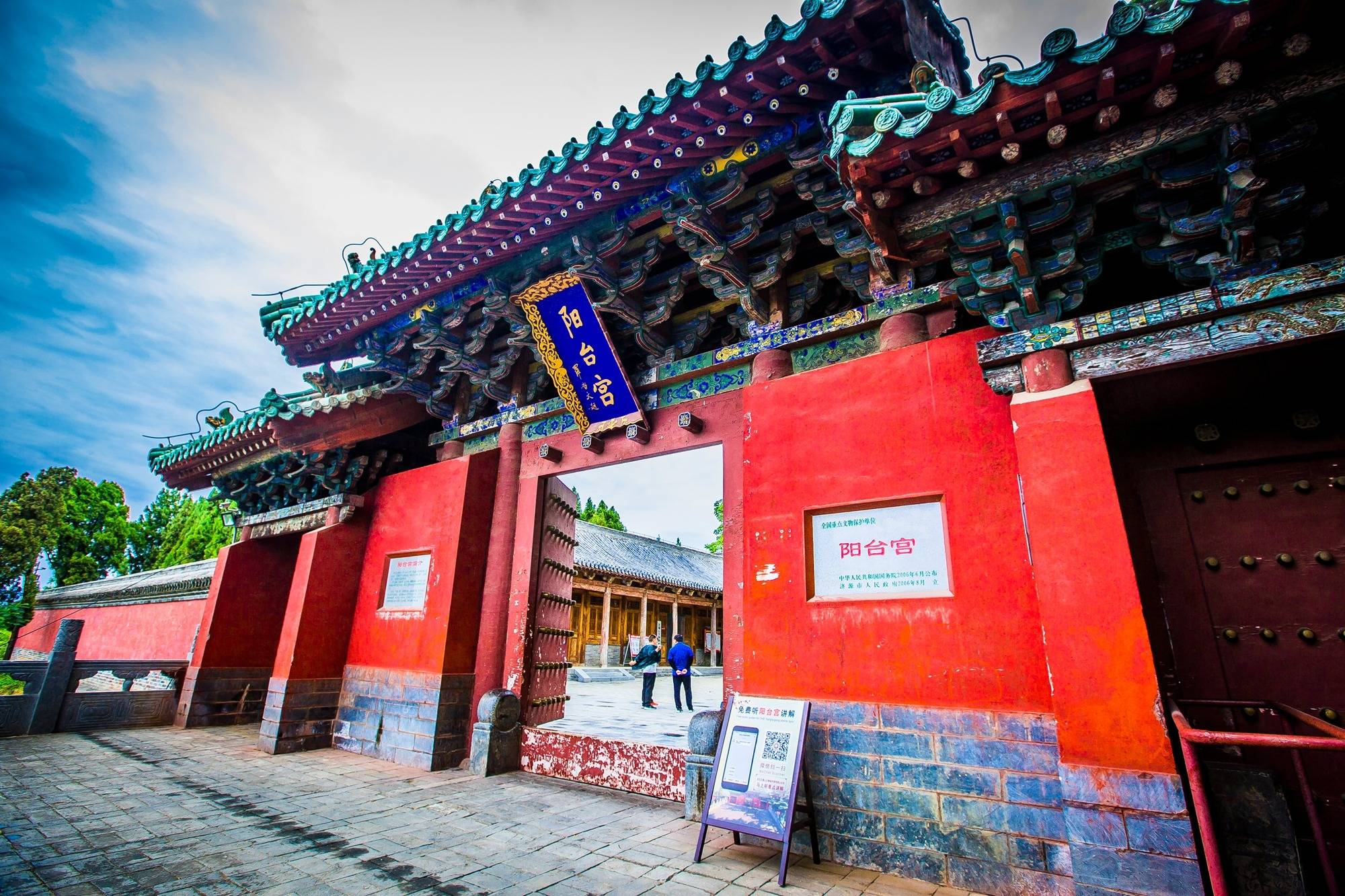
Jiyuan Yangtaigong.
The Rich History of Jiyuan Yangtaigong
Nestled in the scenic surroundings of Wangwu Mountain in Henan Province, Jiyuan Yangtaigong (阳台宫) is a remarkable Taoist temple complex that has stood the test of time since its establishment in 727 AD during the Tang Dynasty. Commissioned by Emperor Xuanzong, this sacred site was built under the guidance of the renowned Taoist priest Sima Chengzhen, who was tasked with selecting a site that embodied the essence of nature and spirituality.
The temple’s name, “Yangtaigong,” translates to “Palace of the Terrace,” aptly reflecting its elevated position and serene ambiance. The site gained significant prominence due to the involvement of Princess Yuzhen, the sister of Emperor Xuanzong, who practiced Taoism here, further enhancing its royal association and spiritual reputation.
Over the centuries, Yangtaigong has served as a vital center for Taoist worship and learning, attracting numerous pilgrims and scholars. Notable historical figures, including the celebrated poet Li Bai, are linked to the temple. In 744 AD, after a period of exile, Li Bai visited Yangtaigong, where he was inspired to create his only surviving calligraphic work, “Shang Yangtai Tie.” This connection to Li Bai adds a rich layer of literary and cultural significance to the site.
Architecturally, the temple complex showcases a harmonious blend of palace and garden styles, with its layout meticulously designed to reflect the principles of feng shui. The main structures include the Daluo Sanjing Hall, a magnificent Ming Dynasty building adorned with intricate carvings, and the Yuhuang Pavilion from the Qing Dynasty, known for its towering design and elaborate sculptures that narrate tales from Taoist mythology.
Today, Yangtaigong remains a treasured historical site, celebrated for its artistic heritage and spiritual lineage. Visitors can explore its tranquil courtyards, admire the ancient trees that have witnessed centuries of history, and immerse themselves in the profound tranquility that this sacred place offers. The temple not only serves as a testament to China’s rich Taoist traditions but also stands as a symbol of the enduring legacy of the Tang Dynasty, inviting travelers to reflect on the intricate tapestry of nature, culture, and spirituality.
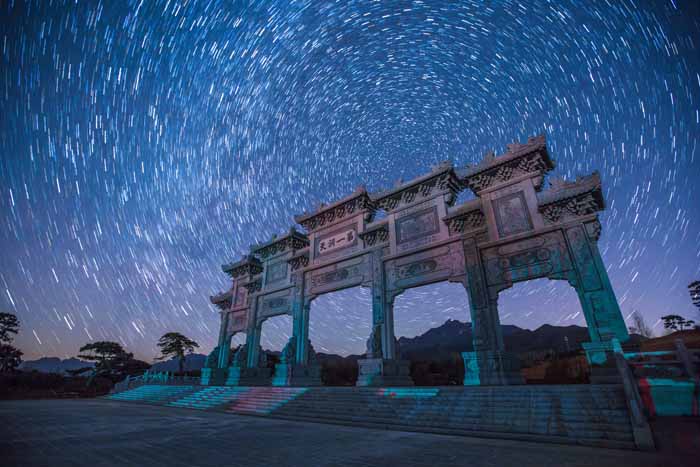
Jiyuan Yangtaigong.
Main Highlights: What to See at Jiyuan Yangtaigong
Nestled in the picturesque surroundings of Wangwu Mountain in Henan Province, Jiyuan Yangtaigong, also known as Yangtai Palace, is a revered Taoist site that transports visitors back to the Tang Dynasty. Established in 727 AD during the reign of Emperor Xuanzong, this sacred palace has become a significant cultural and spiritual landmark in China.
One of the primary attractions of Yangtai Palace is the magnificent Daluo Sanjing Hall, a prime example of Ming Dynasty architecture. This expansive hall features intricate wooden structures adorned with colorful brackets and beautifully carved stone columns, showcasing remarkable artistry from the period. The ceiling’s painted beams and the exquisite reliefs depict various Taoist deities and mythical scenes, offering a glimpse into the rich spiritual heritage of the site.
Adjacent to the Daluo Sanjing Hall stands the Yuhuang Pavilion, a towering three-tiered structure from the Qing Dynasty. It is celebrated for its unique architectural style and the intricate dragon motifs that grace its columns. The pavilion is surrounded by 20 stone pillars, each elaborately carved with images of dragons, phoenixes, and floral patterns, bringing the stories of gods and nature to life.
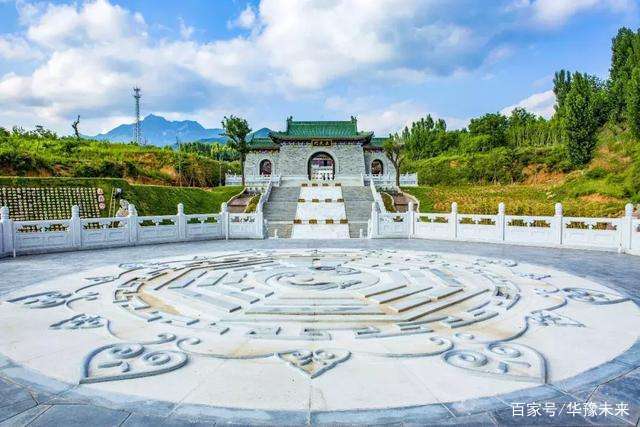
Jiyuan Yangtaigong.
Visitors can also explore the peaceful courtyards featuring ancient trees, including a millennium-old Sandalwood tree, adding to the tranquil atmosphere. The palace grounds invite leisurely strolls and moments of reflection amidst nature’s splendor.
The historical significance of Yangtai Palace is further enriched by its connection to renowned poets such as Li Bai, who composed the famous “Shang Yangtai Tie” here in 744 AD. This calligraphic piece is the only surviving work of Li Bai, encapsulating the spirit of this enchanting location.
Open daily from 8:00 AM to 5:00 PM, Yangtai Palace offers free admission and is ideal for a visit lasting 1-2 hours. Whether you are a history enthusiast, a lover of architecture, or seeking spiritual solace, Yangtai Palace provides an unforgettable experience where the past and nature beautifully converge.
Planning Your Visit: A Practical Guide
Practical Guide to Visiting Jiyuan Yangtaigong (阳台宫)
Visiting Jiyuan Yangtaigong offers a unique glimpse into China’s rich cultural heritage and stunning natural landscapes. Nestled at the foot of the majestic Wangwu Mountain in Henan Province, this Taoist temple is a must-see for history buffs and nature lovers alike. Here’s everything you need to know to make the most of your visit.
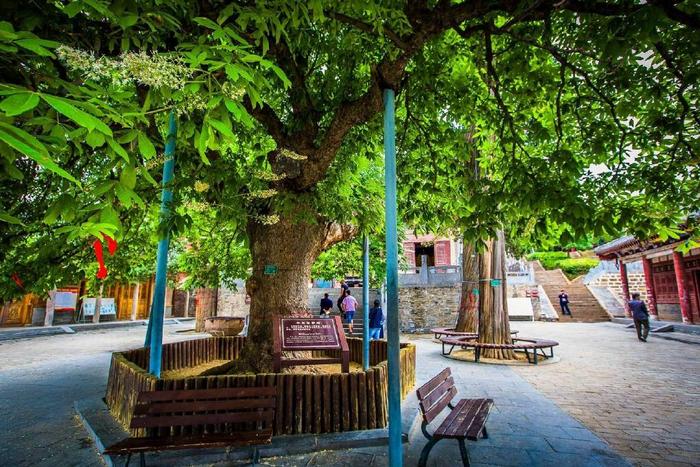
Jiyuan Yangtaigong.
Getting There
Location:
Yangtaigong is located approximately 30 kilometers northwest of Jiyuan city, within the Wangwu Mountain Scenic Area. The temple is easily accessible by various means of transport.
By Public Transport:
You can take a direct bus from Jiyuan city to the Wangwu Mountain area. Buses are frequent, with a ticket costing around 7 RMB.
By Car:
If you prefer driving, you can easily reach Yangtaigong via the local road network. Parking is available near the entrance.
Opening Hours and Admission
Opening Hours:
Yangtaigong is open daily from 8:00 AM to 5:00 PM.
Admission Fees:
Entry to Yangtaigong is free, making it an accessible destination for everyone. However, there may be fees for other attractions within the Wangwu Mountain Scenic Area.

Jiyuan Yangtaigong.
Suggested Duration of Visit
Plan to spend around 1 to 2 hours exploring Yangtaigong. This timeframe allows you to appreciate the architecture, take photographs, and enjoy the tranquil surroundings.
Highlights of Yangtaigong
-
Historical Significance:
Built in 727 AD during the Tang Dynasty, Yangtaigong is one of the most important Taoist temples in the region. It has a rich history, having been a retreat for royal family members and notable figures such as Princess Yuzhen. -
Architectural Marvels:
The site features stunning constructions, including the Daluo Sanjing Hall (大罗三境殿) and the Yuhuang Pavilion (玉皇阁), showcasing exquisite Ming and Qing Dynasty architecture. The intricate carvings and beautiful ceilings are a testament to the artistic talent of the era. -
Natural Beauty:
Surrounded by lush mountains and ancient trees, the temple offers breathtaking views and a serene atmosphere, perfect for relaxation and reflection.
Visitor Tips
-
Best Time to Visit:
The ideal months for visiting are April, May, September, and October, when the weather is pleasant and the scenery is at its finest. -
Dress Appropriately:
Wear comfortable shoes suitable for walking on uneven terrain. Given the mountain location, layers are recommended as temperatures can fluctuate throughout the day. -
Respect Local Customs:
As a place of worship, maintain a respectful demeanor. Avoid loud noises and be mindful of the sacredness of the site. -
Photography:
Capture the beauty of Yangtaigong and its surroundings, but be cautious not to disturb other visitors or the tranquility of the temple.
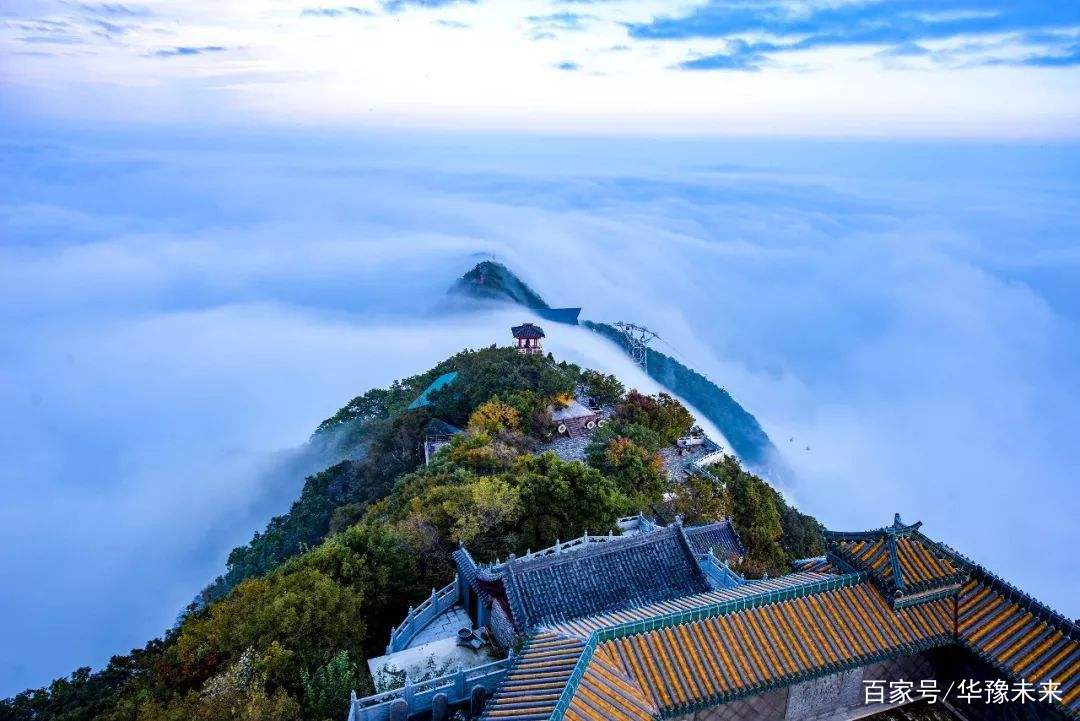
Jiyuan Yangtaigong.
Nearby Attractions
While visiting Yangtaigong, consider exploring other nearby sites within the Wangwu Mountain Scenic Area:
- Wangwu Mountain Peak: A challenging hike that rewards you with panoramic views of the region.
- Ziweigong (紫微宫): Another significant Taoist temple, rich in history and culture.
- Quyang Lake (曲阳湖): A picturesque spot for relaxation and picnicking.
Dining and Accommodation
Several dining options are available in the vicinity, offering local specialties. For accommodation, consider staying at nearby guesthouses or hotels, which provide a cozy atmosphere after a day of exploration.
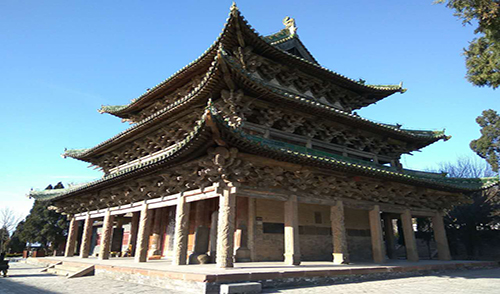
Jiyuan Yangtaigong.
Conclusion
A visit to Jiyuan Yangtaigong is more than just a trip; it’s a journey through history and spirituality. With its stunning architecture, rich cultural significance, and beautiful natural surroundings, it promises an enriching experience for every traveler. Plan your visit today and immerse yourself in the beauty of this remarkable site!
Tickets, Hours, and Booking
Visiting Jiyuan Yangtaigong (阳台宫) is a delightful experience that immerses you in rich history and stunning architecture. Here’s everything you need to know about tickets for this cultural gem.
Admission Details
The entry to Jiyuan Yangtaigong is completely free, allowing visitors from all walks of life to explore this significant Taoist site without any financial barrier. However, to access the broader scenic area that includes the surrounding Wangwu Mountain attractions, a nominal fee is required.
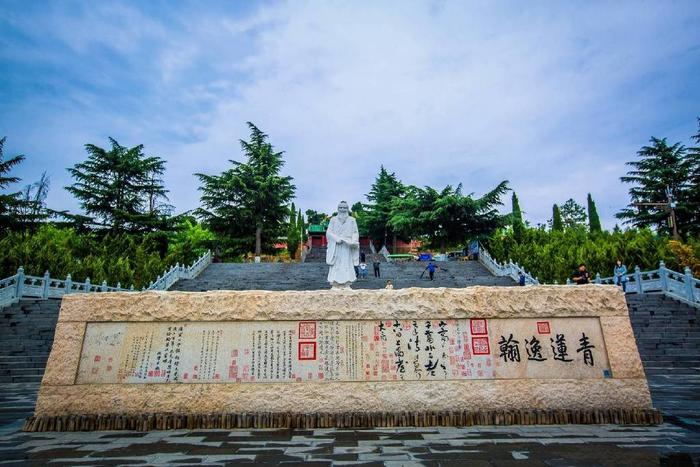
Jiyuan Yangtaigong.
Ticket Pricing
- General Admission: The cost for access to the Wangwu Mountain Scenic Area is approximately CNY 50 ($7), which includes the entry to Yangtaigong.
- Discounted Tickets: Reduced fare tickets are available for students, journalists, and members of certain organizations, who can purchase tickets at half price with valid identification.
Opening Hours
Jiyuan Yangtaigong is open to visitors daily from 8:00 AM to 5:00 PM. It is advisable to arrive early to fully appreciate the serene atmosphere and the intricate details of the ancient buildings.
Recommended Visit Duration
Plan to spend about 1 to 2 hours at Yangtaigong. This should give you ample time to explore the main attractions, including the impressive Daluo Sanjing Hall and the exquisite Yuhuang Pavilion, while soaking in the spiritual ambiance of the site.
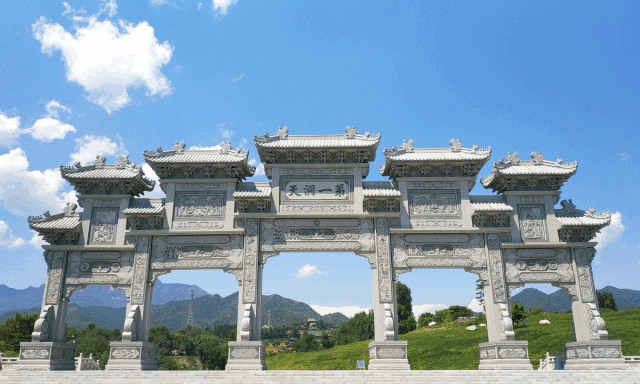
Jiyuan Yangtaigong.
How to Get There
To reach Yangtaigong, travelers can take public transportation from Jiyuan city or opt for a scenic drive, as the location is approximately 30 kilometers northwest of Jiyuan City. Regular shuttle services operate to the site, making it accessible for all visitors.
Additional Tips
- While the entrance to the temple complex is free, consider budgeting for other activities in the scenic area.
- Be prepared for changing weather conditions in the mountainous region; wearing comfortable walking shoes and bringing a light jacket is advisable.
With its free admission and immersive cultural experience, Jiyuan Yangtaigong is a must-visit for anyone exploring the historical landscapes of China.
How to Get There
Getting to Jiyuan Yangtaigong (阳台宫) is relatively straightforward, thanks to various transportation options available to visitors. Here’s a comprehensive guide to help you navigate your way to this Taoist sanctuary nestled in the scenic Wangwu Mountain area.
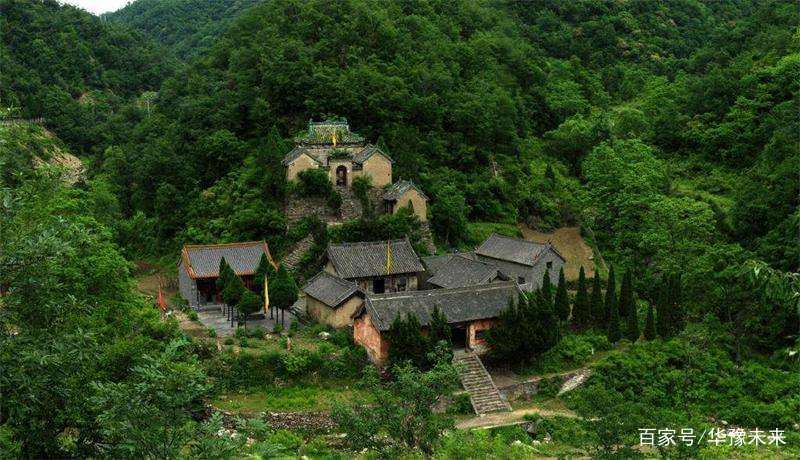
Jiyuan Yangtaigong.
By Train
For those traveling from major cities in China, the nearest railway station is in Jiyuan City (济源市). High-speed trains and regular trains connect Jiyuan to cities like Zhengzhou and Luoyang. Upon arrival at the Jiyuan train station, you can opt for a bus or taxi to reach Yangtaigong.
By Bus
Jiyuan City offers several bus services that facilitate easy access to Yangtaigong. The local transportation network includes buses that run directly to the Wangwu Mountain Scenic Area, where Yangtaigong is located. Key bus lines to look for include:
- Line K183
- Line L92
- Line L604
- Line 6920
- Line L394
These buses typically operate throughout the day, with fares around 7 RMB per person.
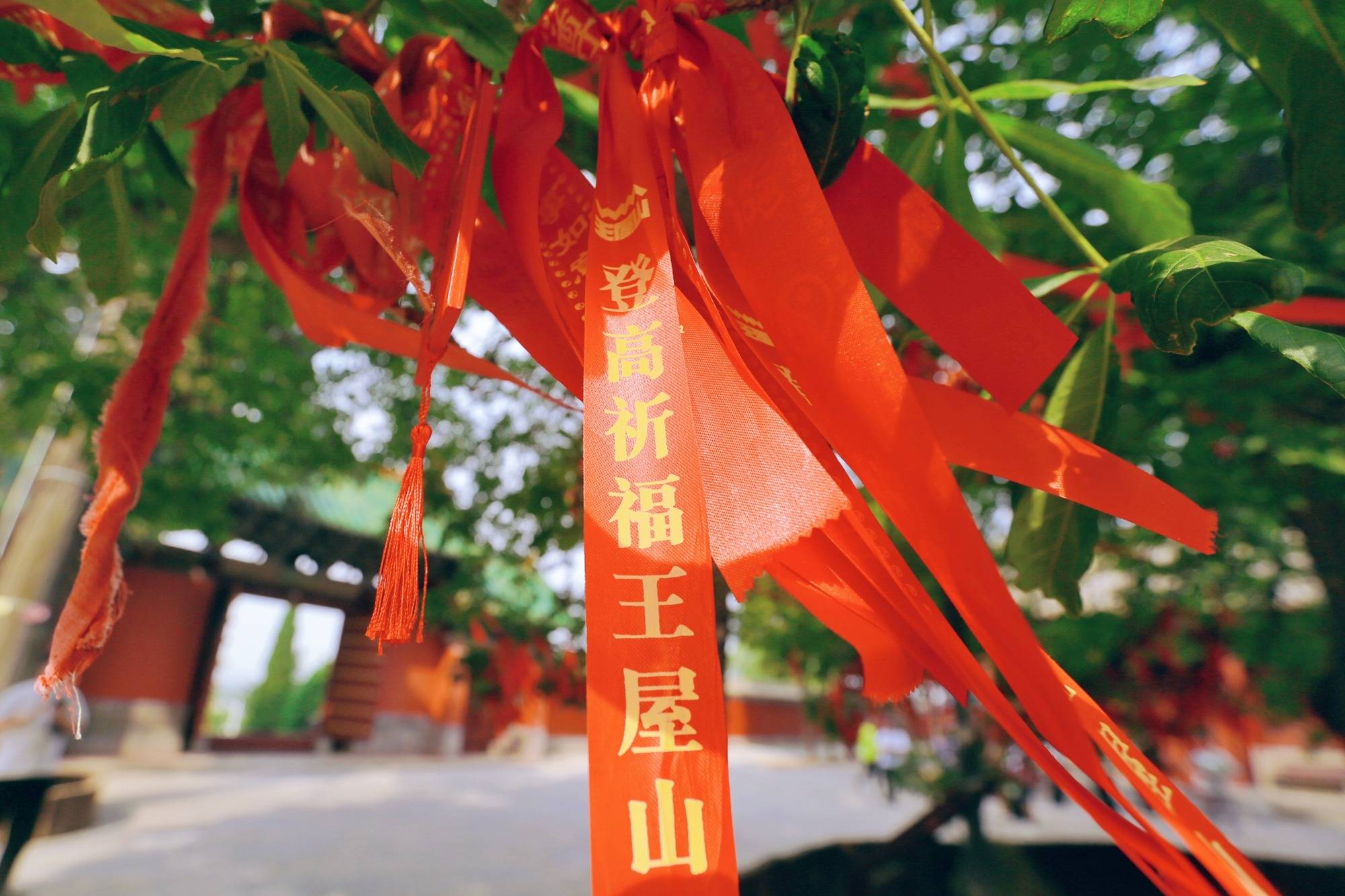
Jiyuan Yangtaigong.
By Car
If you prefer the flexibility of driving, renting a car or using a ride-hailing service is an excellent option. The drive from Jiyuan City to Yangtaigong takes about 30 to 40 minutes, covering approximately 30 kilometers. The route is scenic, with panoramic views of the surrounding mountains.
Tour Options
For those who prefer a guided experience, several tour operators offer packages that include transportation to Yangtaigong. These tours often combine visits to other local attractions, providing a full day of exploration.
Local Transportation
Once you arrive at Yangtaigong, the site is pedestrian-friendly, allowing you to explore the beautiful grounds at your own pace. Public transport options are limited within the scenic area, so be prepared for some walking.
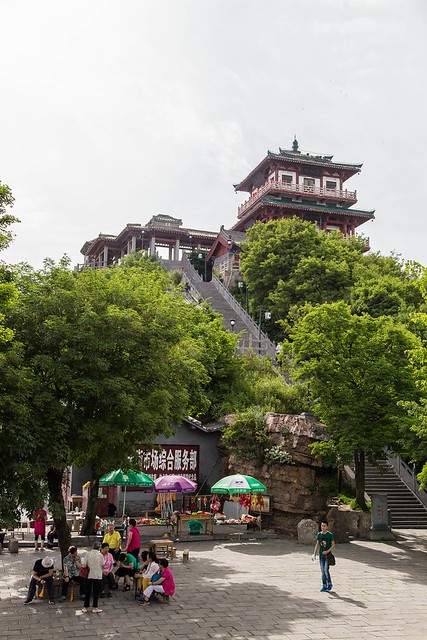
Jiyuan Yangtaigong.
Accessibility
Yangtaigong is generally accessible, but those with mobility challenges may want to consider contacting local services in advance to ensure a smooth visit. The main pathways are well-maintained, but some areas may require more effort to navigate.
In summary, reaching Jiyuan Yangtaigong is convenient with multiple transportation options, whether you prefer public transit, private transport, or guided tours. Plan ahead to make the most of your visit to this historical and cultural gem.
Local Cuisine and Accommodation
When visiting Jiyuan Yangtaigong (阳台宫), you’ll want to enhance your adventure with local culinary delights and comfortable accommodations. Here’s a guide to help you enjoy the best of what this picturesque area has to offer.
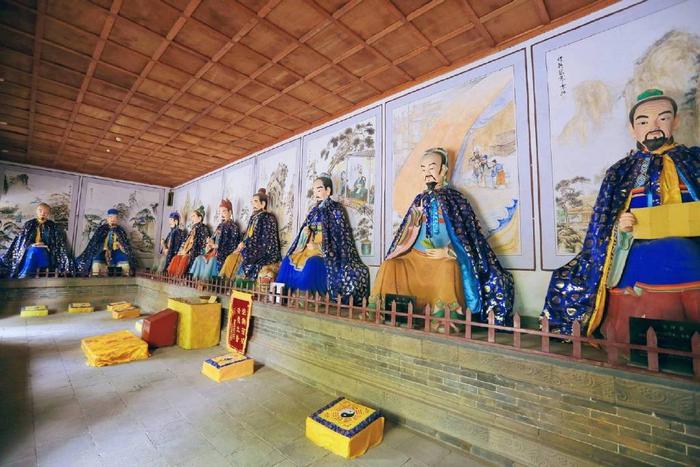
Jiyuan Yangtaigong.
Culinary Delights
The food scene around Yangtaigong is rich and diverse, reflecting the vibrant culture of Henan province. Here are a few must-try places:
-
Jia Jinyang Haler Restaurant (贾晋阳饸饹馆)
Known for its traditional Henan dish, “Haler” (a type of noodle), this eatery offers a cozy atmosphere and authentic flavors. With an average price of about ¥37 per person, it’s a fantastic spot for a hearty meal after your exploration. -
Dicos (德克士)
Located near the Yangcheng Bamboo Forest Hotel, Dicos serves up quick and satisfying meals at around ¥24 per person. It’s a great choice if you’re in the mood for fast food without sacrificing taste. -
Lanzhou Beef Noodle (兰州正宗牛肉拉面)
A favorite among locals, this restaurant specializes in hand-pulled noodles and tender beef, all for an affordable price of approximately ¥15. It’s perfect for a quick lunch or dinner before heading back to your accommodation.
Where to Stay
For a truly immersive experience, consider these nearby accommodations that combine comfort with local charm:
-
Wangwu Mountain Scenic Area Inn (王屋山庄旅游宾馆)
This inn offers picturesque views and is conveniently located near the mountain. It is well-rated for its hospitality and provides a relaxing environment after a day of sightseeing. -
Couple’s Wooden Cabin (情侣小木屋)
For a unique and romantic experience, these charming wooden cabins provide a cozy retreat nestled in nature. It’s an ideal choice for couples looking to escape the hustle and bustle. -
Yujian Hotel (济源宾馆)
Situated within a reasonable distance from Yangtaigong, this hotel provides comfortable lodging with modern amenities. It’s perfect for families or groups seeking a more traditional hotel experience.
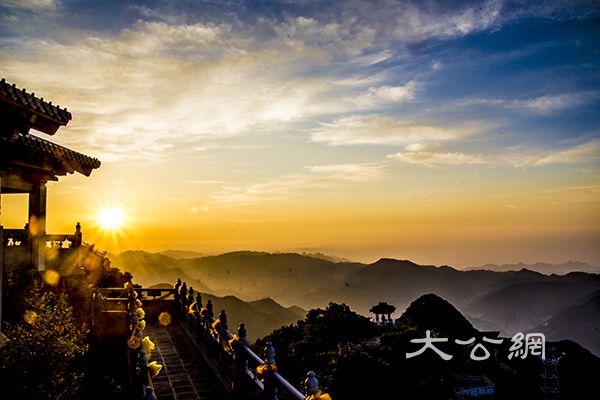
Jiyuan Yangtaigong.
Local Snacks and Markets
Don’t miss out on the local markets, where you can find delightful snacks such as fried dough sticks and steamed buns, perfect for a quick bite as you explore the area. These treats are not only delicious but also a great way to experience the local culture.
Final Thoughts
Whether you’re savoring the rich flavors of Henan cuisine or resting in one of the local accommodations, your visit to Jiyuan Yangtaigong will be enhanced by the vibrant food and hospitality of the region. Enjoy your culinary journey and restful nights as you explore this historical and cultural treasure!
Frequently Asked Questions
Frequently Asked Questions about Jiyuan Yangtaigong (阳台宫)
-
What is the location of Jiyuan Yangtaigong?
Jiyuan Yangtaigong is situated at the southern foot of Huagai Peak in the Wangwu Mountain Scenic Area, approximately 30 kilometers northwest of Jiyuan City, Henan Province, China. -
What are the opening hours for Yangtaigong?
The site is open from 8:00 AM to 5:00 PM. Visitors are encouraged to arrive early to fully explore the area. -
Is there an admission fee for Yangtaigong?
Yes, entry to Yangtaigong is free; however, the overall ticket to the Wangwu Mountain Scenic Area costs approximately 50 RMB, which includes access to Yangtaigong. -
How long should I plan to spend at Yangtaigong?
A visit typically requires about 1 to 2 hours. This allows ample time to appreciate the architecture and serene surroundings. -
What are the main attractions within Yangtaigong?
Key highlights include the Daluo Sanjing Hall, Yuhuang Pavilion, and various ancient trees and relics from the Ming and Qing dynasties, which showcase the rich history and artistry of the site. -
What is the historical significance of Yangtaigong?
Established during the Tang Dynasty in 727 AD, Yangtaigong is a renowned Daoist temple where notable figures, including Princess Yuzhen and famous poet Li Bai, are said to have practiced. -
Are there any nearby attractions worth visiting?
Yes, other notable sites in the Wangwu Mountain area include the Ziwang Palace, Tiantan Peak, and the Wangmu Cave. Each offers unique cultural and natural experiences. -
What is the best time to visit Yangtaigong?
The ideal seasons for visiting are spring (April-May) and autumn (September-October) when the weather is pleasant and the scenery is at its finest.
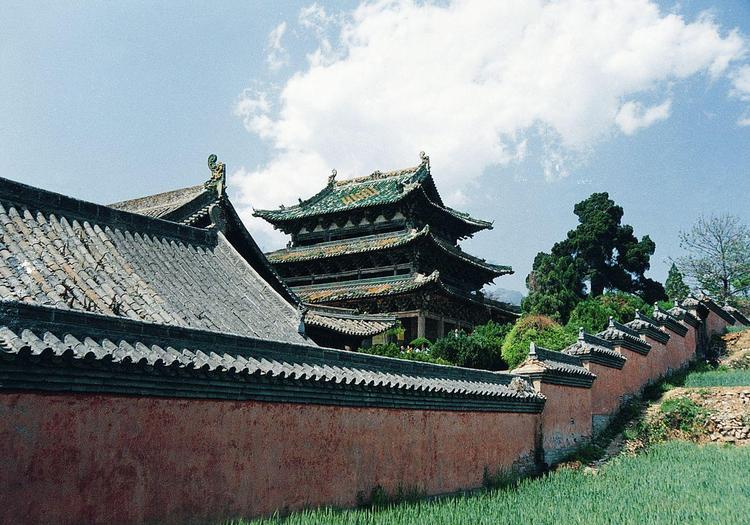
Jiyuan Yangtaigong.
Final Thoughts on Your Trip
As you conclude your journey through Jiyuan Yangtaigong, take a moment to reflect on the rich tapestry of history and culture that envelops this sacred site. Established in the Tang Dynasty, the palace not only serves as a remarkable architectural marvel but also as a testament to the enduring legacy of Taoism in China.
Walking through the intricately designed halls of the Daluo Sanjing Hall and the majestic Yuhuang Pavilion, you are transported back to a time when poets like Li Bai sought inspiration in these very spaces. The serene atmosphere, accentuated by ancient trees and exquisite stone carvings, invites introspection and a deeper connection with nature.
Whether you are a history enthusiast, a spiritual seeker, or simply a traveler in search of beauty, Jiyuan Yangtaigong offers an enriching experience that transcends time. As you leave, carry with you not just memories of its stunning architecture, but also the whispers of the past that echo through its sacred grounds. Embrace the spirit of this place and let it inspire your own journey ahead.
